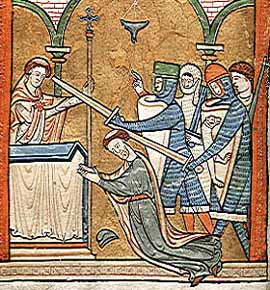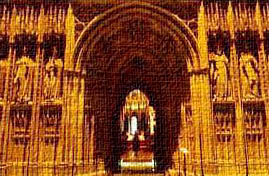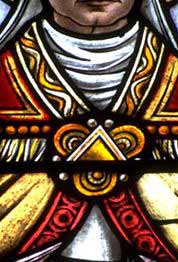 |
| "My
father, King Henry, had faithful servants—He had but to say that
he was plagued with a factious priest, and the blood of Thomas-a-Becket,
saint though he was, stained the steps of his own altar." —Sir Walter Scott, Ivanhoe |
Earthlore Introduction | Earthlore Contents | Gothic Introduction | Gothic Contents | E-mail
|
|
|
|||||||||||||
 Canterbury cathedral. 
|
"The knight, fired with a terrible rage at this severe repulse, waved his sword over the sacred head. 'No faith', he cried, 'nor subjection do I owe you against my fealty to my lord the King.' - The account of Edward Grim, a monk who witnessed the murder of Thomas Becket. Image at left: Interior portal at Canterbury cathedral, leading to the altar. |

| Development & Production Credits |
| Theme
Editor : Nicole Blackford —
Primary Text : Rhey Cedron Art Direction : Thierry Alberto — Art Research : Malcolm Hurrell Principal Photography : Rhey Cedron Structural Design : Mark Nelson — Research Assistant : Walter McCrae Support Production : Henry Craig, Joan Flandrin, Clara Kelly |
| E-mail
: @elore Your questions and comments are always welcome! Learn more about the Earthlore story, upcoming web features and future cultural projects. Ask to receive your |
 |
Content Copyrights: ©1995-2018 - Exclusive rights reserved.
Individual use of enclosed material is encouraged for the purposes of education and enjoyment.
The republication of content, without license, is an infringement of Copyright laws.



